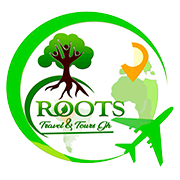DOUBLE CLICK TO EDIT TITLE

SENEGAL

Senegal, a vibrant country on the westernmost tip of Africa, is celebrated for its rich cultural heritage, historical significance, and captivating natural landscapes. Known as the gateway to West Africa, Senegal offers a blend of lively cities, tranquil beaches, and deep historical roots that make it a must-visit destination for travelers seeking both adventure and cultural immersion.
A Brief History
Senegal’s history is marked by a dynamic blend of African traditions, Islamic influence, and European colonization. The region was home to powerful empires like the Ghana, Mali, and Songhai empires, as well as the Jolof Kingdom, which played a central role in the area’s history.
From the 15th century onward, European powers, including the Portuguese, Dutch, and French, began establishing trading posts along the coast, with Gorée Island becoming a notorious hub during the transatlantic slave trade.
Senegal was colonized by France and became a critical part of French West Africa. The country gained its independence on April 4, 1960, under the leadership of Léopold Sédar Senghor, a renowned poet and statesman who became the country’s first president. Senghor’s vision of “Negritude” emphasized African cultural pride, laying the foundation for Senegal’s enduring cultural legacy.
Today, Senegal is known for its political stability, welcoming hospitality (Teranga), and vibrant culture that harmonizes traditional African customs with modern influences.
Discovering Senegal
Senegal is a land where history, culture, and nature come together in harmony. From the vibrant streets of Dakar to the serene landscapes of the Sine-Saloum Delta, and from the spiritual aura of Touba to the colonial charm of Saint-Louis, Senegal offers a captivating journey for every traveler.
Whether you’re drawn by the soulful sounds of mbalax music, the historic depths of Gorée Island, or the pristine beaches of Casamance, Senegal invites you to experience the warmth, hospitality, and spirit of “Teranga.”

